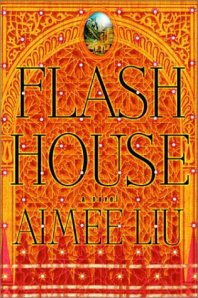How a conversation with a successful magazine writer forced her to clarify her ideas about what and why she writes:
 Years ago I had coffee in NYC with a very talented writer who has traveled around the world writing articles for such publications as Esquire, The New Yorker, and Vanity Fair. He talked like a machine gun, shooting out thoughts faster than I could process them. At one point in the conversation I tried to explain why I’ve never felt comfortable with the idea of writing articles, and essays in particular. “I don’t ever quite believe people will want to read what I have to say.”
Years ago I had coffee in NYC with a very talented writer who has traveled around the world writing articles for such publications as Esquire, The New Yorker, and Vanity Fair. He talked like a machine gun, shooting out thoughts faster than I could process them. At one point in the conversation I tried to explain why I’ve never felt comfortable with the idea of writing articles, and essays in particular. “I don’t ever quite believe people will want to read what I have to say.”
He shot back, “Boy, are you in the wrong business!” and moved on to the hundredth new topic of the morning.
I didn’t have a chance to qualify, to say that that’s why I feel it necessary to fictionalize, to heighten the impact and interest of whatever it is that I do choose to write about. But it didn’t matter. I believe my reticence, in the long run, helps my writing, just as for him, with his abundant hubris, it would be death. Our voices are entirely different, just as we are as people. We each will have our different readers, and lives. Our own levels of that curious commodity, “success.”
I do not think people will be interested in most of the things I have to say, but this is not because my life and mind are boring. I do not read the newspaper from cover to cover, and I especially don’t read most daily columns. Men talking about the observations they’ve made about their wives on the way to the dry cleaners, or women talking about how much they can learn about their husbands from their socks, or young women extolling on the trials and tribulations of pregnancy as if no woman in history has ever been pregnant before. Yes, these epiphanies are what keep us all alive and what make us all human, but once we have experienced them, do we really need to read them pouring from somebody else’s pen?
What I want to write is what I actually want to read. And what I want to read is something other than my own life – something taken from my own life, perhaps, but expanded, twisted, turned into something larger and fascinating, filled with questions I can’t yet answer and maybe won’t be able to answer even after the writing is finished, though I’ll be closer.
The articles that arise out of this larger process are the ones that interest me, including several written lately by my magazine-writer friend as he embarks on his first book. Recently he told me, “I think I finally write like a grown up,” and I know what he means. It’s not just a matter of style, of honing a particular grammar or facility with big words – better yet, of rejecting all big words. It’s a reflection of a grown-up way of inspecting the world.
Stories are not just what happen to us. Most really good stories belong to other people, and in order to write them honestly, we must grow up enough to step into those other people’s lives. We must wonder and fantasize and search for insight not as we have done all our lives, but as other people – real or imagined – must have done. We must become them. My friend might not realize that he’s slipping out of himself as he writes in this mode, but for me the whole point of the exercise is to escape myself.
Then again, maybe it comes down to the same thing. He’s more demonstrative, more energetic, more fanatical. And yes, I’ll say it, more exhaustingly fun. But for both of us — for any writer worth his or her salt — the daily grind requires us to discover what we have to say that other people will indeed want to read.
Aimee Liu is author of the novels Flash House, Cloud Mountain, and Face. Her nonfiction includes Gaining: The Truth about Life After Eating Disorders, and a memoir, Solitaire. She earned her MFA from Bennington College and now teaches in Goddard College’s MFA in Creative Writing Program. This piece is adapted from a longer essay on her blog: http://www.aimeeliu.net/blog.htm.
